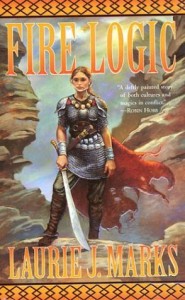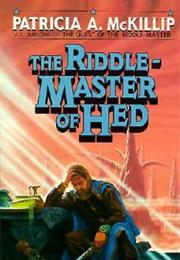

Because these farm or businesses survive for hundreds of years, these families provide a lot of long-term stability, yet within that stability there’s a lot of room for individuals to have all different kinds of loving relationships, and for those relationships to shift and change over time. Lacking those concepts, it seems like people would not pair off into nuclear families, and instead would group together into practical, multi-generational alliances to operate a farm or business. Also, I wanted to experiment with a world in which the concepts of heterosexuality (or homosexuality) and gender roles simply don’t exist.

In our real world, a lot of people surround themselves by intimates of one kind or another that substitute for a family they don’t want or that doesn’t want them, and I was trying to model the Shaftali families after those extended friendships and cooperative relationships. People who belong to an elemental order don’t belong to families, but they do treat each other as family members and although they might have children, they don’t raise or even know those children. The children are raised by the entire family regardless of biological relationship, though children are likely to have a special relationship with biological mothers and fathers.

Typically, a young person marries into a pre-existing family and has children with several partners who may or may not also be members of that family, although families also include pairs of monogamous lovers. Large, multi-generational families are the norm there, and nuclear families would be frowned upon, because Shaftali believe that children need many parents. LAURIE: Let me first explain how families work in Shaftal. Was there a particular inspiration or plan behind the way you laid out Shaftali family and gender relations, or did they come to you naturally while you were writing the books? In particular, I loved the family that the protagonists of Fire Logic have forged by the time that Earth Logic begins. Marks.ĪNDREA: The theme of Sirens this year is lovers, but what struck me about the world of the Elemental Logic books is not so much the Shaftali acceptance of queerness (which: yay!) as the expansive definition of family. Today, Andrea Horbinski interviews Laurie J. We hope these conversations will be a prelude to the ones our attendees will be having in Denver this October. We’ll cover a variety of topics relevant to Sirens with each author, from their inspirations, influences, and craft, to the role of women in fantasy literature as befits our 2016 focus on lovers and the role of love, intimacy, and sex.

We’re pleased to bring you the last in a series of candid, in-depth interviews with this year’s Sirens Guests of Honor.


 0 kommentar(er)
0 kommentar(er)
